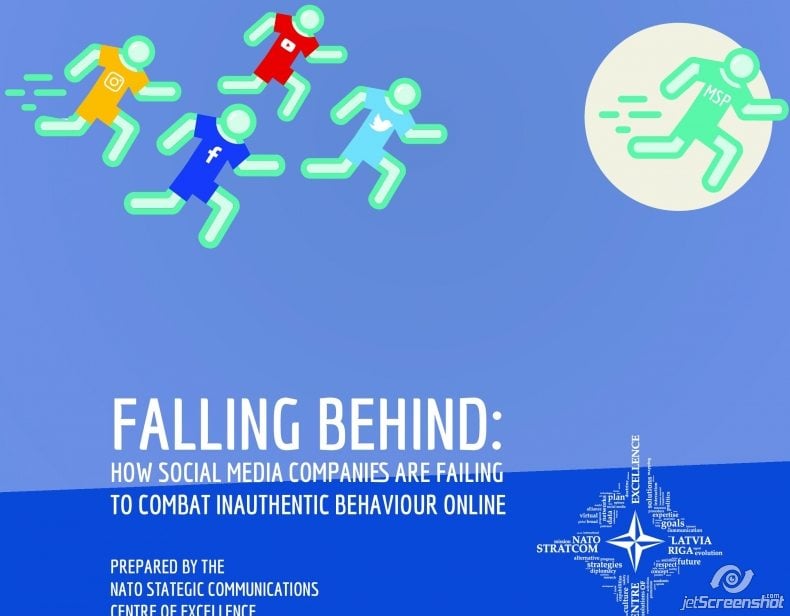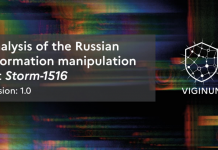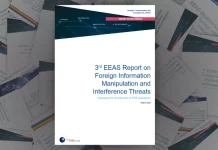
By Sebastian Bay, Rolf Fredheim, for NATO Strategic Communication Centre of Excellence
Download publication file (2.77 MB)
EXECUTIVE SUMMARY
From the 2014 invasion of Ukraine to more recent attempts to interfere in democratic elections, antagonists seeking to influence their adversaries have turned to social media manipulation.
At the heart of this practice is a flourishing market dominated by Manipulation Service Providers (MSPs) based in Russia. Buyers range from individuals to companies to state-level actors. Typically, these service providers sell social media engagement in the form of comments, clicks, likes, and shares.
Since its foundation, the NATO Strategic Communication Centre of Excellence in Riga has studied social media manipulation as an important and integral part of the influence campaigns malicious state and non-state actors direct against the Alliance and its partners.
To test the ability of Social Media Companies to identify and remove manipulation, we bought engagement on 105 different posts on Facebook, Instagram, Twitter, and YouTube using 11 Russian and 5 European (1 Polish, 2 German, 1 French, 1 Italian) social media manipulation service providers.
At a cost of just 300 EUR, we bought 3 530 comments, 25 750 likes, 20 000 views, and 5 100 followers. By studying the accounts that delivered the purchased manipulation, we were able to identify 18 739 accounts used to manipulate social media platforms.
In a test of the platforms’ ability to independently detect misuse, we found that four weeks after purchase, 4 in 5 of the bought inauthentic engagements were still online. We further tested the platforms ability to respond to user feedback by reporting a sample of the fake accounts. Three weeks after reporting more than 95% of the reported accounts were still active online.
Most of the inauthentic accounts we monitored remained active throughout the experiment. This means that malicious activity conducted by other actors using the same services and the same accounts also went unnoticed.
While we did identify political manipulation—as many as four out of five accounts used for manipulation on Facebook had been used to engage with political content to some extent—we assess that more than 90% of purchased engagements on social media are used for commercial purposes.
By Sebastian Bay, Rolf Fredheim, for NATO Strategic Communication Centre of Excellence




